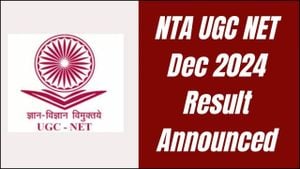The constantly shifting dynamics of international trade are feeling the impact of geopolitical events, ranging from stringent new regulations to easing sanctions. A recent analysis by Mike Parr, CEO of PML Seafrigo for the UK and Ireland, highlights how new import rules threaten to disrupt trade, especially for fresh produce coming to the United Kingdom.
To remain compliant, incoming regulated products must possess the necessary Phytosanitary or Health (Sanitary) documentation prepared by exporters. These documents need to be sent to importers or their representatives before the product's arrival. Goods must also be pre-notified via the Import of Products, Animals, Food and Feed System (IPAFFS). If selected for physical examination, these goods must be presented at designated facilities. It’s clear, as Parr notes, this complex protocol is poised to cause significant disruption for importers, retailers, and consumers alike.
“To be fully compliant, regulated products coming to the UK must have the correct Phytosanitary or Health (Sanitary) documentation raised by the exporter,” stated Parr. This assertion reflects widespread concerns within the industry about how such regulations could complicate timely deliveries and increase costs.
Countries like the Netherlands are leveraging technology to streamline these requirements, allowing producers to submit videos for approvals instead of waiting for multiple days. Yet, according to Parr, UK customs regulations are lagging. “Why can’t the same approach be adopted in the UK?” he questions. The fruits of this regulatory approach, especially concerning perishable goods, could lead to fewer available items on British supermarket shelves and heightened prices for consumers.
The impending challenges of 2025 loom large for those entwined within the perishable goods supply chain. Current conditions suggest potential future shortages, which may stem not only from exports stalling due to increased checks but also from the rising costs of compliance driving producers out of the market.
On another front, developments focused on easing trade tensions between the US and Russia could create opportunities for exporters. Remarks by US Treasury Secretary Scott Bessent indicate possible relief from sanctions if negotiations concerning the war in Ukraine prove fruitful. Following US President Donald Trump’s comments about meeting Russian President Vladimir Putin, apprehensions among Indian exporters of engineering goods to Russia have begun to ease.
Exporters from India have been facing uncertainties since the US imposed sanctions on 19 Indian entities involved with dual-use goods to Russia late last year. “Exporters, worried about US sanctions...have been in talks with the government to convince Washington to ease the scope of categorization,” shared one unnamed source.
This year, Indian exports to Russia surged to $4.26 billion, up from $3.25 billion two years prior, driven by growing oil imports, which ballooned from $9.86 billion to $61.15 billion over the same period. These figures illuminate how the geopolitical fray—and subsequent trade restrictions—have influenced market behaviors.
Yet, even as potential easing of restrictions looms on the horizon, experts caution there are obstacles to navigate. Biswajit Dhar, Distinguished Professor at the Council for Social Development, remarked, “While things may get easier on the US front because Trump is warming up to Putin, EU sanctions may get stronger.” These comments shed light on the broader picture, signaling the need for exporters to remain vigilant about not just American sanctions but European regulations as well.
Overall, the intertwining events of geopolitics and international trade remain fraught with complications. The uncertainty about future US-Russia relations, coupled with the introduction of stringent import regulations, presents exporters with unprecedented challenges. Navigational finesse will be necessary for businesses to thrive within this complex lattice of regulations, sanctions, and international relations.



